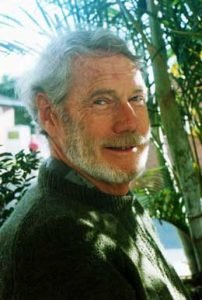
A series by Laurie Stubbs – first published in the Nimbin Good Times
The series sets out a trial set of values based on the principle Life Develops Itself (LDI)
Take anything you want from the Earth and use it, but when you have finished with it return it to the Earth in the same form as when you took it.
Natural breakdown and change of all things on Earth happens on a rational and predictable base. Interference by humanity upsets rationality, produces massive problems. To fail at recycling robs Earth of what it needs to continue to sustain life. Here again the LDI principle is directly involved.
Industrial and mining wastes must be fully recycled. Minerals will always be taken from the earth’s crust, but the earth must be restored to the function level that applied before the mining. Equally, the junk which most of these minerals become must be recycled as resources for repeat products — not merely buried or put out of sight. For example, nuclear wastes are a huge potential for damage temporarily locked away in one form or another. Humanity has so far baulked at the cost of reprocessing but allows an unrealistic profit to be taken today.
Taking materials from the earth in future carries an obligation to reprocess whatever wastes are involved and return them safely to the earth. Action is — in the long run — agreed to (or allowed) and therefore is done by the people as a whole whether the immediate actor is Governments or corporations.
We must review collectively what is done in our name.
Do whatever you like on the Earth as long as it does not change the systems that make the Earth our home, nor deprive a species of its livelihood.
This is an extension of the value above Take anything you want from the Earth and use it, — but includes a wider framework so as to maintain earth systems, and existing species. The current example is global warming, and its effect on weather change. In turn, weather change could be catastrophic.
Take any living thing for food, but acknowledge your debt to it, and do enough work to replace it.
All living things ‘work for a living’. Ant and termite colonies function to allow the breakdown of materials into a form plants can use. Bacteria, insects fish, reptiles, mammals and all the rest have interrelated functions in a marvellously complex chain of action that works to allows all to survive as species. Complexity and diversity is part of the way life develops itself. But humanity has the choice to decide whether a particular person may work.
Though the meaning of “work” changes when we look at mankind, it is still input to a complex exchange between humans and the environment. But some humans do not work, and so are denied the self respect and status which comes from the western idea of work. If such a person were to create a vegetable garden and grow what they eat, they would have stepped outside the conventional wisdom, would have “worked” within the work notion of this value.
The work of growing is a process of understanding a personal relatedness to the earth and all its species. That relatedness is the essence of the work idea contained in this value. One life form preys on another throughout the gamut of species. Today’s human numbers don’t accept that foodstocks have a life. An element of human balance has thus been lost.
Accepting the contribution of other living things to our lives recognises our dependence on other species and the planet’s interlocking systems. All living things contribute in one way or another to the lives of all the rest.
Resources are conserved; used carefully without wastefulness or selfishness.
Natural use of and changes of materials from one form to another sets the standard. Humankind must conform to this natural law.
Human wastes are returned safely to the soil.
What comes from the earth must go back to the earth. All natural life forms do it. Man is no exception.
Regard the Earth as held in trust by you for your descendants.
It is axiomatic the LDI principle insists on preserving the earth in good shape. That it can be preserved is shown by Australian Aboriginal experience. As a value it is in direct contrast to the conventional Western resources to rubbish paradigm; many of the worlds problems have origins which flow from that outlook.
Next article looks at the second group.
